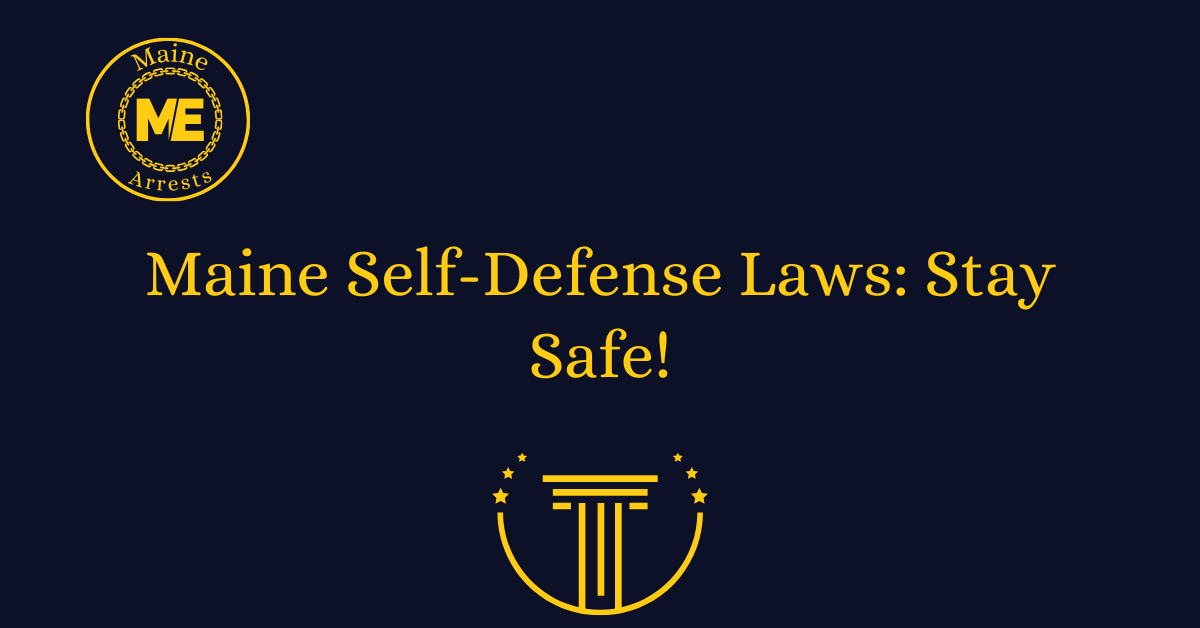Maine Self-Defense Laws: Stay Safe!
Discover the key to staying safe in the great state of Maine with our comprehensive guide to self-defense laws. In this detailed and informative resource, we will delve into the legalities surrounding self-defense and provide you with the knowledge you need to protect yourself and your loved ones.
From understanding the right to defend oneself to navigating the complexities of the Castle Doctrine, our guide will equip you with the essential information to stay on the right side of the law. We will explore the boundaries of self-defense, including when the use of force is considered justifiable and the factors that determine whether your actions were reasonable in the eyes of the law.
Understanding Your Rights
When it comes to self-defense, it is crucial to have a clear understanding of your rights. In this section, we will explore the legal framework that allows individuals to protect themselves and their loved ones. By familiarizing yourself with the laws surrounding self-defense, you can ensure that you are well-informed and prepared.
The Right to Defend Oneself
One of the fundamental principles of self-defense is the right to protect oneself from harm. However, it is essential to understand that this right is not unlimited. There are certain criteria and conditions that must be met for your actions to be considered justifiable under the law. In this section, we will delve into the factors that determine whether your use of force was reasonable.
The Castle Doctrine
The Castle Doctrine is a legal concept that allows individuals to use force, including deadly force, to defend themselves within their own homes. However, the application of the Castle Doctrine varies from state to state. In this section, we will explore how the Castle Doctrine applies in the state of Maine and the specific circumstances under which it can be invoked.
Justifiable Use of Force
When it comes to self-defense, the question of whether your use of force was justifiable often arises. Understanding the boundaries of justifiable force is crucial to staying on the right side of the law. In this section, we will examine the factors that determine whether your actions were reasonable in the eyes of the law.
Proportional Response
A key principle in self-defense is the idea of a proportional response. This means that the level of force used should be proportionate to the threat faced. In this section, we will discuss what constitutes a proportional response and how it is evaluated by the legal system.
Imminent Danger
In order for your actions to be considered justifiable, there must be an imminent threat of harm. In this section, we will explore what qualifies as imminent danger and the role it plays in determining the legality of self-defense actions.
Reasonable Fear
Another crucial factor in self-defense cases is the presence of reasonable fear. This means that you must have a genuine belief that you or someone else is in immediate danger of being harmed. In this section, we will delve into what constitutes reasonable fear and how it is assessed by the courts.
FAQs
What are Maine Self-Defense Laws?
Maine Self-Defense Laws refer to the legal provisions that allow individuals to protect themselves, their property, and others from harm or threat of harm.
Can I use force to defend myself in Maine?
Yes, Maine law allows you to use reasonable force to defend yourself if you believe you are in imminent danger of bodily harm or death.
Do I have a duty to retreat before using force?
No, Maine follows the “Stand Your Ground” principle, meaning that you are not required to retreat before using force if you are in a place where you have a legal right to be.
What factors determine if my use of force was justified?
Maine law considers factors such as whether you reasonably believed you were in danger, the level of force used, and whether you tried to avoid using force if possible.
Can I use deadly force to protect my property?
In Maine, you generally cannot use deadly force solely to protect your property. However, if you reasonably believe that someone is about to commit a felony or inflict serious bodily harm, you may use deadly force.
What should I do if I have to defend myself?
If you find yourself in a situation where you need to defend yourself, it is important to immediately contact the authorities and report the incident. It is also advisable to seek legal counsel to understand your rights and responsibilities under Maine Self-Defense Laws.
Conclusion
Armed with the knowledge provided in this comprehensive guide, you can navigate the complexities of self-defense laws in the state of Maine. Understanding your rights, the Castle Doctrine, and the boundaries of justifiable force is essential for staying safe and protecting yourself and your loved ones. Remember, self-defense is a serious matter, and being well-informed is the key to acting within the bounds of the law.







